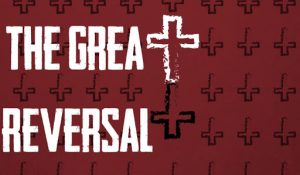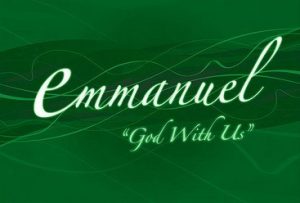Welcome to Day 1576 of our Wisdom-Trek, and thank you for joining me.
I am Guthrie Chamberlain, Your Guide to Wisdom
The Great Reversal – Worldview Wednesday
Welcome to Wisdom-Trek with Gramps! Wisdom is the final frontier in gaining true knowledge. Our mission is to create a legacy of wisdom, seek out discernment and insights, and boldly grow where few have chosen to grow before. Hello, my friend; this is Gramps; thanks for coming along on our journey to increase Wisdom and Create a Living Legacy. Today is Day 1576 of our Trek, and it is Worldview Wednesday. Creating a Biblical Worldview is essential to have a proper perspective on today’s current events. To establish a Biblical Worldview, you must have a proper understanding of God and His Word. This week, we will continue reviewing the book from Dr. Michael S Heiser titled “Supernatural.” The book is an abbreviated version of his more comprehensive book, “The Unseen Realm.” I highly recommend both of these books. Creating a Biblical Worldview based on how the Old and New Testaments connect with God’s overall plan for humanity is essential. This book review will help us understand what the Bible teaches about the unseen world, and why it matters.
The Great Reversal

Aside from stories about Jesus in the Gospels—such as accounts of his birth, death, and Sermon on the Mount—perhaps the most familiar passage in the New Testament is Acts 2, where the Holy Spirit rushes upon the followers of Jesus at the day of Pentecost. It marks the launch of the fledgling church and the beginning of global evangelism in the name of Jesus.
As familiar as the passage is, there’s a lot more going on in it than most realize. Acts 2 is designed to telegraph the campaign to reverse the post-Babel cosmic geography of the Old Testament. The nations other than Israel were under the dominion of lesser gods. What happened at Pentecost was a battle plan for infiltrating all the nations disinherited by God at Babel with the gospel of Jesus—an ancient spiritual war strategy.
Pentecost
What Acts 2 describes as happening on the day of Pentecost was undoubtedly unusual. Acts 2:1-8 :
On the day of Pentecost, all the believers were meeting together in one place. Suddenly, there was a sound from heaven like the roaring of a mighty windstorm, and it filled the house where they were sitting. Then, what looked like flames or tongues of fire appeared and settled on each of them. And everyone present was filled with the Holy Spirit and began speaking in other languages, as the Holy Spirit gave them this ability.
At that time, there were devout Jews from every nation living in Jerusalem. When they heard the loud noise, everyone came running, and they were bewildered to hear their own languages being spoken by the believers.
They were completely amazed. “How can this be?” they exclaimed. “These people are all from Galilee, and yet we hear them speaking in our own native languages!
Some of the things that take us into the supernatural worldview of the Old Testament in that remarkable passage aren’t obvious in the English translation. The “rushing wind” associated with the arrival of the Spirit is a familiar description of the presence of God in the Old Testament (2 Kings 2:1, 11; Job 38:1; 40:6). Fire is also familiar in descriptions of God (Ezekiel 1:4; Isaiah 6:4, 6; Daniel 7:9; Exodus 3:2; 19:18; 20:18).
It’s clear from those references that God was present at the event and behind what was going on. His intention was to launch his campaign to take back the nations from the lesser gods he assigned to the nations (Deuteronomy 4:19–20; 32:8–9), but who became his enemies (Psalm. 82).
God’s tool for doing that was the words of the disciples—hence the imagery of tongues. God enabled the Jewish followers of Jesus to speak to the rest of the Jews gathered at Pentecost—who lived in all the nations under the dominion of enemy gods. When they heard the gospel and believed, they would go back to their nations and tell others about Jesus.
Pentecost and Babel
The Tower of Babel incident was what gave rise to God’s decision to scatter the nations and put them under the authority of other gods (Deuteronomy 4:19–20; 32:8–9). At first glance, there doesn’t seem to be much connection between that event and what happened in Acts 2. But in the original languages, there are clear connections between the two.
Two critical items in Acts 2 connect its events to Babel. First, the flaming tongues are described as “divided,” and second, the crowd, composed of Jews from all the nations, are said to have been “confused.” In English, that may not seem particularly convincing. Luke is writing in Greek. The Greek words he used here translated as “divided” and “confusion” come from Genesis 11:7 and Deuteronomy 32:8, both of which describe the division of the languages and nations at Babel and the resulting confusion.
Luke, the author of Acts, was a Gentile. He could only read Greek. Consequently, he used the Greek translation of the Old Testament known widely then (and still today) as the Septuagint. It was the Old Testament of the early church, since few people could read Hebrew. Luke was thinking of the Babel event when he wrote Acts 2.
But why make the connection? Think about what happened at Pentecost. The Spirit came as God so often had come in the Old Testament, with rushing wind and fire. The confusion of having multiple languages (which was a result of Babel) was removed when the flaming tongues enabled the disciples to speak in the languages of the Jews from all across the world gathered in Jerusalem for the celebration.
Three thousand of them believed the message about Jesus (Acts 2:41).
Those new believers who embraced Jesus as messiah would carry that message back to their home countries—the nations scattered at Babel. Back in Genesis 11, God had turned his back on the nations of humanity and, right afterward, in Genesis 12, called Abraham to establish God’s new people and nation. He was now going to gather people from all those nations he had rejected and bring them back into his believing family alongside Jewish believers descended from Abraham. In time, God’s kingdom would overspread the kingdoms of the enemy gods.
The incredible part of all this is the list of nations in Acts 2 and their presented order. If you looked them up on a map, you would move from the east, where the Jews had been exiled at the end of the Old Testament in Babylon and Persia, westward to the farthest point known at the time. They cover the same distance and scope as the nations listed in Genesis 10—the ones put under the lesser gods.
We Wrestle Not Against Flesh and Blood

Most of the book of Acts is about Paul’s missionary journeys. Paul was the apostle to the Gentiles—the person initially sent by God to start churches in the nations outside Israel. Paul’s journeys and life circumstances, such as his arrest by the Romans, took him ever westward.
In his New Testament letters, Paul often talked about the spiritual forces opposing his ministry and the spread of the gospel. His vocabulary for the evil entities whose domains he violated in the wake of Pentecost shows that he understood the Old Testament’s cosmic geography. Do you notice a common thread running through Paul’s terminology (drawn from the ESV) for the unseen forces of darkness?
- rulers/principalities (Ephesians. 1:20–21; 6:12; Col. 2:15)
- authorities (Ephesians 1:20–21; 3:10; 6:12; Col. 2:15; 1 Cor. 2:6)
- powers (Ephesians 1:20–21; 3:10)
- dominions (Colossians 1:16)
- lords (Ephesians 1:20–21; 1 Cor. 8:5)
- thrones (Colossians 1:16)
All of these words denote geographical rulership. These same terms are used in the New Testament and other Greek literature of human political power holders. Paul’s language is that of domain authority. It reflects how the Old Testament depicts the spiritual world’s relationship to the human world: the nations set aside by God are under the dominion of spiritual beings hostile to him and his people.
“I Will Go to Spain”
The book of Acts ends with Paul journeying to Rome. Paul was a prisoner, and he was going to Rome for two reasons: to appeal to Caesar and to spread the gospel. But Paul knew that to reclaim the nations under the hostile gods, he had to get to the end of the known world at the time. In Old Testament times, that place had been called Tarshish. In Paul’s day, it was called Spain. Paul had to get to Spain to complete his mission. His words to the Romans before his imprisonment tell us he fully intended to go to Spain—to the westward end of the earth in his day—to reclaim every nation for Jesus in Romans 15:24, 28:
I am planning to go to Spain, and when I do, I will stop off in Rome. And after I have enjoyed your fellowship for a little while, you can provide for my journey. As soon as I have delivered this money and completed this good deed of theirs, I will come to see you on my way to Spain.
Paul was motivated by realizing that God’s plan to restore his kingdom had been launched in his own lifetime. He believed that when “the fullness of the Gentiles has come in,” then “all Israel will be saved” (Romans 11:25–26). He thought he was to finish what Pentecost had begun.
Why This Matters

Paul had a supernatural perspective on his own life. He viewed himself as an instrument of God. And he was. But so were all the other unnamed new believers who, after Pentecost, went before him from Jerusalem to infiltrate demonic strongholds where they lived. And so are we.
If we are instruments of God in the same way Paul was an instrument of God, then why was he so much more influential and effective? One difference is that Paul understood what his life was about. He believed the powers that had dominion over the earth were real—and that the power behind and within him was greater.
Do you believe those things? The Bible puts them forth as givens. And that’s how Paul treated them in his own life.
Paul didn’t know how big the world was. He didn’t know about North America, South America, China, India, Norway, Australia, Iceland, and many other places. God did. God knew the task of spreading the gospel to all the world would ultimately be much greater than Paul could comprehend. God knew others would have to follow Paul’s goal for himself if the gospel was to reach every part of the earth. If we’re not actively trying to complete the task, we aren’t doing what we’re here on earth to do. If we want God only so he will come to us to meet our needs, then we’re more like the people at Babel than we are like Jesus, the Twelve, and Paul.
Another implication of the passages of Scripture we’ve examined is that the notion of demonic strongholds is biblical. We aren’t given a full description of demonic zones or turf boundaries, or even a spiritual pecking order for the dark side. We are told, however, that the unseen powers see earth as their domain. We’re told those powers resist God’s kingdom and don’t want people to become part of God’s plan to spread his good rule everywhere. That means we should expect resistance we can’t explain with logic or empirical evidence, and we can’t defeat it on our own. God has given us his Spirit and unseen agents of his own to help us further his mission (1 Corinthians 3:16; 6:19; Hebrews 1:13; 1 John 4:4).
The real question to ask ourselves is this: What would our lives be like if we woke up each day with a view of the world and its supernatural influences that matched Paul’s? What if, each day, our lives were organized around our knowledge of our status as part of God’s family, tasked with delivering siblings from darkness? What if we lived intentionally, knowing that each decision we make and each word we speak isn’t randomly purposeless? What if, instead, we believed unseen intelligences all around us use our decisions, our actions, our words to influence other people—for good or evil—whether or not we see or know them? Our jobs, our income, our talents, even our problems are of no consequence when it comes to knowing who we really are, and will be, and why we’re here. We cannot see the supernatural world—nor can we see the microscopic world—but we’re inextricably part of both.
Early believers thought this way. As we’ll see in the next chapter, they believed the world around them was enslaved to darkness that would one day yield. Despite the fact that the battle was literally them against the hostile world and its powers, they quietly produced the global thing we call Christianity, with God and his unseen agents working with them. They believed the spiritual conflict was real and that, ultimately, they couldn’t lose. We’re living proof that they didn’t.[1]
That will finish our study for this week’s worldview Wednesday. Join us again next week as we continue with the next chapter in Supernatural in our quest to build our Biblical Worldview. Tomorrow we will ponder another bit of wisdom from Gramps. So encourage your friends and family to join us and then come along with us tomorrow for another day of ‘Wisdom-Trek, Creating a Legacy.’

If you would like to listen to any of our past 1575 treks or read the Wisdom Journal, they are available at Wisdom-Trek.com. I encourage you to subscribe to Wisdom-Trek on your favorite podcast player so that each day’s trek will be downloaded automatically.
Thank you so much for allowing me to be your guide, mentor, and, most of all, your friend as I serve you through this Wisdom-Trek podcast and journal.
As we take this Trek together, let us always:
- Live Abundantly (Fully)
- Love Unconditionally
- Listen Intentionally
- Learn Continuously
- Lend to others Generously
- Lead with Integrity
- Leave a Living Legacy Each Day
I am Guthrie Chamberlain….reminding you to ’Keep Moving Forward,’ ‘Enjoy your Journey,’ and ‘Create a Great Day…Everyday’! See you Tomorrow!
[1] Heiser, M. S. (2015). Supernatural: What the Bible Teaches about the Unseen World—And Why It Matters. (D. Lambert, Ed.) (pp. 127–135). Bellingham, WA: Lexham Press.
Leave a Reply